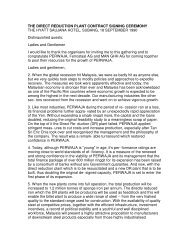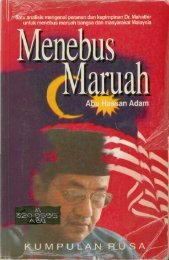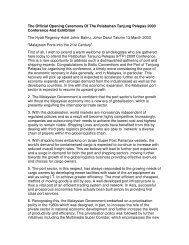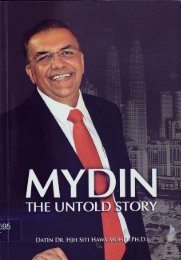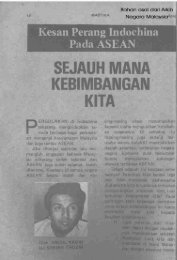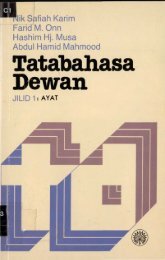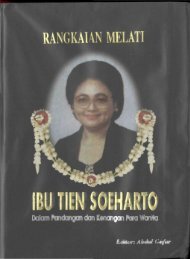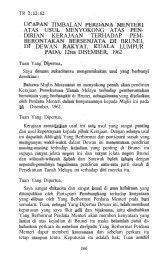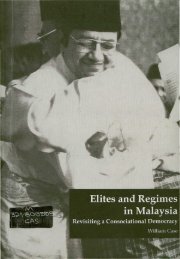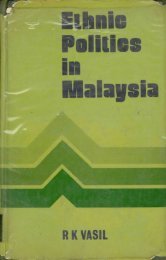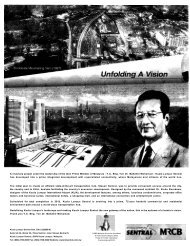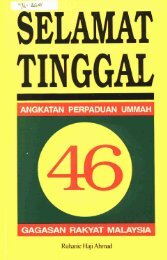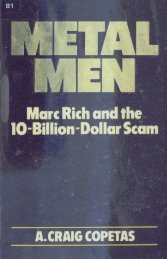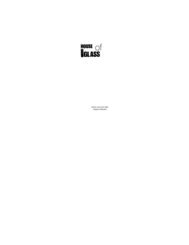TRIBUTE ABDUL - Perdana Library
TRIBUTE ABDUL - Perdana Library
TRIBUTE ABDUL - Perdana Library
You also want an ePaper? Increase the reach of your titles
YUMPU automatically turns print PDFs into web optimized ePapers that Google loves.
FRANK SULLIVAN<br />
unusual; it is an accepted practice in most countries, some of which,<br />
particularly the Communists, are only too quick to insist on it.<br />
The third important point is South Africa's policy of apartheid<br />
The Government there has been carrying out this policy for twelve<br />
years, but in the nine months or so immediately before the Conference<br />
apartheid was attracting general concern in many parts of<br />
the world owing to the excessive rigour used in enforcing every<br />
letter of the law. The South African Government obstinately refused<br />
to listen to the protests, continuing to act with blind contempt<br />
of the Declaration of Human Rights. Sooner or later the crescendo<br />
of oppression seemed bound to explode into violence. Finally, it<br />
did explode, at Sharpeville in mid-March. The shots fired there<br />
rang around the world; the tragedy of Sharpeville was a bitter shock<br />
to the conscience of free men.<br />
One of the very first to protest was our Prime Minister. He<br />
sent an immediate telegram to Prime Minister Macmillan deploring<br />
the action of the South African police in shootingdown unarmed men,<br />
women and children, and he asked for the agenda of the Commonwealth<br />
Conference in London to include discussion on apartheid.<br />
That was just six weeks before the Conference began. During<br />
that intervening time not a day passed without worldwide news<br />
on apartheid or events in South Africa, not the least being the<br />
attempted assassination of the Prime Minister, Dr. Verwoerd.<br />
Correspondents and feature writers on the spot, editors and columnists<br />
everywhere in the free world, wrote volumes condemning South<br />
Africa. Governments and national leaders cabled the strongest<br />
protests. Parliaments met in the Commonwealth to debate apartheid.<br />
Our own Parliament was unique because it gave the Tunku<br />
an open and unanimous mandate to raise the question at the Prime<br />
Ministers' Conference. The Afro-Asian group in the United<br />
Nations brought the matter to the Security Council, which authorised<br />
the Secretary-General to make a personal investigation. In<br />
short, all civilised opinion was opposed to apartheid. Yet in spite<br />
of this international clamour and concern South Africa persisted in<br />
claiming that apartheid was purely a domestic matter.<br />
49



